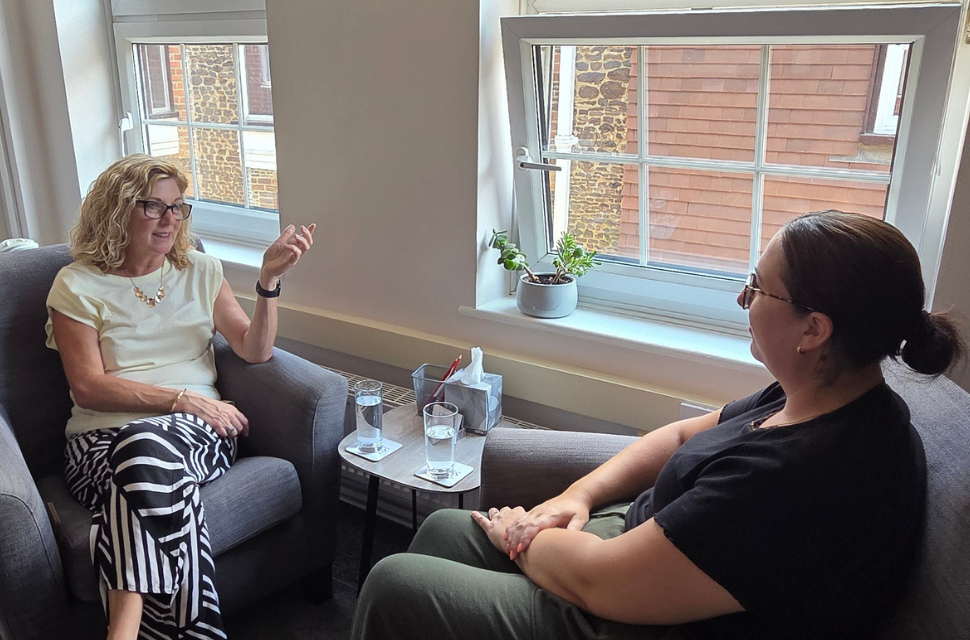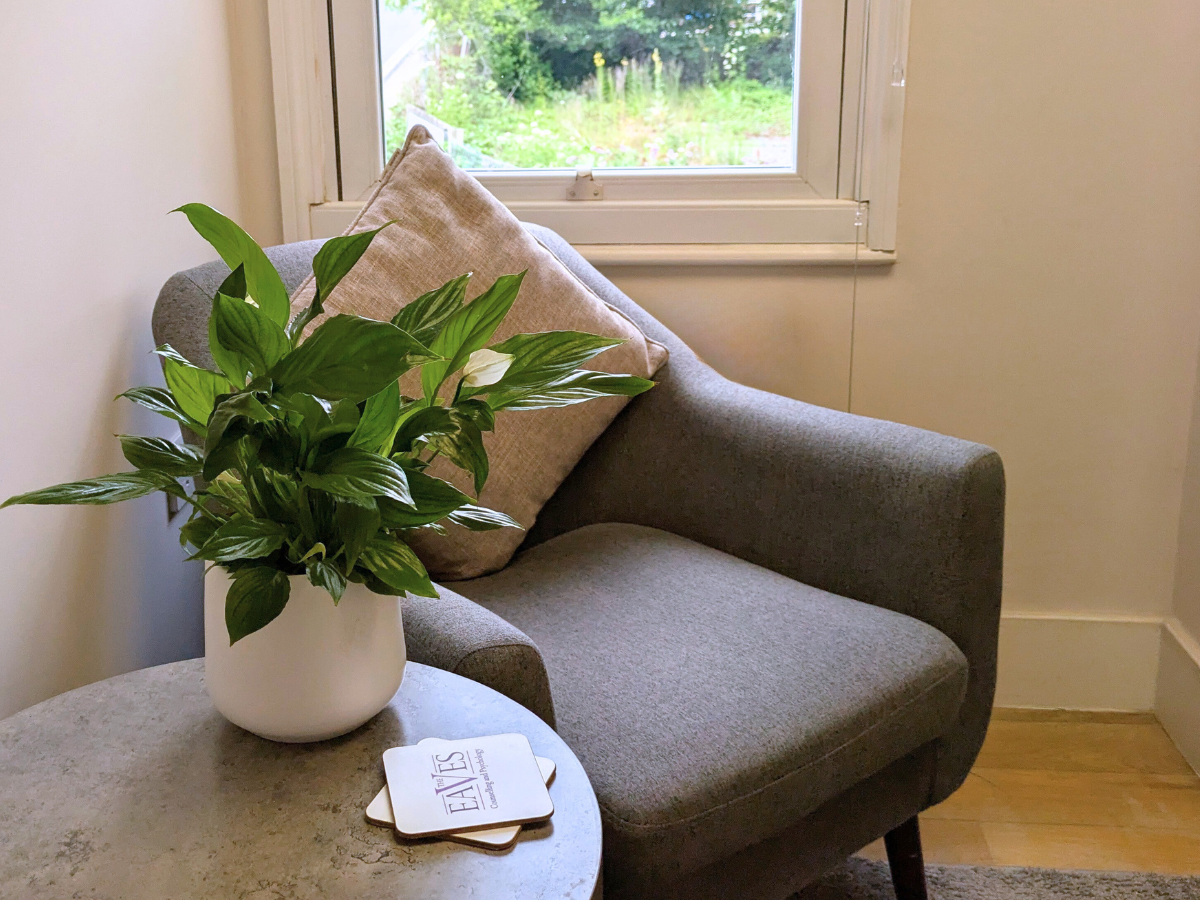If you or someone you care about is considering psychological treatment, DBT therapy (Dialectical Behavioural Therapy) offers a powerful and structured path toward emotional balance and healthier relationships.
In this article, we’ll explore 5 real-life skills you can expect to learn in DBT therapy, how they help in everyday life, and how The Eaves practitioners delivers DBT-based care. We’ll also point to useful mental health resources and related approaches, to support you (or your clients) in making an informed decision.
Before diving into skills, it helps to know what DBT is and how it differs from other therapies. DBT is a form of behavioural therapy that evolved from cognitive behavioural therapy (CBT). It was originally developed by Marsha Linehan, aiming to help people who experience emotional dysregulation, self-harm, or instability in relationships.
A key innovation in DBT is its dialectical stance: it emphasises acceptance and change, validating the client’s experience while also working to build new coping skills.
DBT often combines group therapy (skills classes), individual therapy, and phone coaching or between-session support. Some clients benefit from an intensive DBT programme; others may receive DBT techniques embedded within a broader therapy.
DBT is typically structured around four modules of DBT skills:
1. Mindfulness
2. Distress tolerance
3. Emotion regulation
4. Interpersonal effectiveness
These modules offer a practical “toolkit” you can carry into daily life. Below are five real-life skills drawn from those modules that clients commonly learn and practise.

Why it matters:
When emotions run high or anxiety takes over, we often drift into rumination about the future or past. Mindfulness helps ground us in the moment, observing thoughts, sensations and emotions without criticism.
A real-life application:
Imagine you’re waiting for an urgent medical result. Worry spirals: “What if it’s bad?” Mindfulness allows you to notice each thought and feeling as it arises, recognise it (“I’m anxious”), and then return to your breath or senses, rather than getting lost in “what if” stories.
Skills you might learn:
• Observing and describing your internal experience (thoughts, feelings, body)
• “What” and “How” skills (e.g. What — observe, describe, participate; How — nonjudgmentally, one-mindfully, effectively)
• “Wise mind” practice: integrating emotional and rational mind into a balanced state
Mindfulness is foundational in DBT and supports the other skills.
Why it matters:
Some crises or emotional storms can’t be solved immediately, and fighting them often makes them worse. Distress tolerance teaches you how to cope in the moment without escalating, until more resources or perspective arrive.
A real-life application:
Suppose you receive unexpected negative feedback at work and your heart races. Instead of lashing out or shutting down, you draw on distress tolerance skills to ride through the surge of emotion until you can respond more calmly.
Key skills and techniques:
• Radical acceptance: accepting reality as it is without denying or resisting it (this doesn’t mean liking it, but refusing to fight it)
• Self-soothing (using senses: vision, sound, smell, touch, taste)
• Distracting with wise behaviours
• Improving the moment (brief strategies to reduce distress)
• Pros & cons (evaluating whether acting impulsively is worth it)
These help reduce impulsive or self-harm behaviours by increasing tolerance for discomfort.

Why it matters:
Many clients come to DBT because emotions feel overwhelming, unpredictable, or uncontrollable. The emotion regulation module helps you map your “emotional weather” and develop strategies to modulate it.
A real-life application:
You feel a sudden wave of anger during an argument at home. Rather than letting that escalate into shouting or shutting down, you pause and use emotion regulation tools to manage your physiological arousal and choose a calmer response.
Skills you might learn:
• Identifying and labelling emotions
• Checking what triggered them (internal and external events)
• Reducing vulnerability (please master: eating, sleep, exercise, social contact)
• Applying opposite action (choosing behaviours that counter the emotion)
• Building positive emotional experiences
These skills help you shift the intensity of emotions rather than becoming overwhelmed by them.
Why it matters:
Many conflicts and distress arise in relationships. Interpersonal effectiveness skills help you express your needs, maintain respect for yourself and others, and negotiate challenging interactions.
A real-life application:
You need to ask a colleague to take on extra work, but you fear conflict. Using interpersonal effectiveness skills, you formulate a respectful but clear request, set boundaries, and respond if met with pushback.
Skills you might learn:
• DEAR MAN (Describe, Express, Assert, Reinforce, Mindful, Appear confident, Negotiate)
• GIVE (Gentle, Interested, Validate, Easy manner) — balancing connection and clarity
• FAST (Fair, Apologies (no excess), Stick to values, Truthful) — maintaining self-respect
Research in recent computational psychology has even used DEAR MAN as part of simulated training systems to boost self-efficacy in communication.

Learning discrete skills is only half the battle. The real power of DBT therapy comes when you integrate them — applying mindfulness, distress tolerance, emotion regulation, and interpersonal effectiveness fluidly in real-world situations.
How this integration works:
• During individual sessions, your therapist helps you practise chain-analysis. Dissecting how a situation triggered emotions, which thoughts and urges followed, and which DBT skills might interrupt the cascade.
• You complete homework exercises (or “diary cards”) to track your urges, emotional intensity, and skill use across days.
• In group therapy classes, you learn new techniques, role-play, and share experiences with others.
• Phone coaching / between-session support helps you apply skills in the moment, especially during crises or emotional spikes.
1. Select, experienced practitioners
We maintain a select professional body of counsellors, psychotherapists and psychologists who have training and experience in dialectical behavioural therapy, group therapy and integrative approaches.
2. Flexibility of delivery
You can access care from our practices (Guildford, Godalming, Farnham, Haslemere) or online. Some of our practitioners offer DBT-informed work that fits your circumstances.
3. Multiple referral routes
You can self-refer directly to our practitioners, or come via GP, mental health teams, private insurers, hospitals, schools, psychiatrists or employers.
4. Supporting all populations
We work with individuals, children, couples and families from diverse backgrounds. Some of our clinicians tailor DBT skills for developmental, relational and cultural contexts.
5. Long hours and accessibility
We provide psychological care 12 hours a day, 6 days a week, making support more accessible for those with busy schedules or urgent needs.
6. Complementary therapeutic approaches
Some therapists often integrate DBT with cognitive behavioural therapy, mindfulness-based approaches, systemic therapy or trauma-informed work, depending on the client’s needs.

• Commit to regular attendance (group and individual), since DBT is cumulative in effect.
• Engage fully in homework (diary cards, practice assignments) — these reinforce skill uptake.
• Be patient — change often takes time; skills gradually become more automatic.
• Use the coaching or “in the moment” support when you’re struggling to apply a skill in real life.
• Reflect on progress — track changes in emotional reactivity, relationships, or crisis behaviours over months.
While many therapeutic modalities exist (CBT, psychodynamic, EMDR, systemic therapy), DBT stands out for its structured, skills-based, empirically supported approach, especially for those experiencing emotional dysregulation, self-harm behaviours, borderline personality features, or repeated crisis.
Incorporating DBT skills means clients leave with tools they can carry forward beyond therapy, not just insight. The emphasis on behavioural therapy, mindfulness, dialectic and skill generalisation helps build lasting resilience.
DBT is often used alongside cognitive behavioural therapy and other treatment modalities, rather than in isolation. Many clients benefit from blending approaches depending on their symptoms and history.
DBT also connects with broader mental health resources, community support, peer groups, mindfulness apps, crisis lines so that therapy doesn’t happen in a vacuum but becomes part of a holistic support network.

If you decide to engage in DBT therapy, you can expect to learn an integrated suite of skills (mindfulness, distress tolerance, emotion regulation, interpersonal effectiveness) that carry into real life. Over time, these DBT skills support more stability, better relationships, and fewer crises. At The Eaves, our experienced practitioners can help you tailor DBT-informed work in a flexible, accessible format.
If you’re interested in exploring DBT therapy further, whether for yourself, your child, or someone you work with — feel free to reach out. We can help match you with a suitable practitioner and answer any questions.
DBT Therapy (Dialectical Behavioural Therapy) is a type of behavioural therapy that focuses on both acceptance and change. It was developed from Cognitive Behavioural Therapy (CBT) but adds mindfulness and emotional regulation techniques. While CBT primarily targets changing thought patterns, DBT also emphasises accepting emotions and building practical coping skills such as distress tolerance and interpersonal effectiveness.
DBT Therapy was originally designed for people experiencing intense emotional swings, self-harming behaviours or borderline personality disorder, but today it’s widely used to help with anxiety, depression, post-traumatic stress, eating disorders, and relationship difficulties.
A standard DBT programme typically lasts between six months and a year, though this can vary depending on your goals and the intensity of support required. Some clients benefit from shorter, DBT-informed therapy that focuses on specific DBT skills such as mindfulness or emotion regulation.
Yes, you can. The Eaves offers DBT Therapy both in-person (from our practices in Guildford, Godalming, Farnham and Haslemere) and online, so you can access psychological support wherever you are. Online DBT sessions maintain the same level of structure, confidentiality and professionalism as face-to-face therapy, and can be especially helpful for people managing busy schedules or mobility challenges.
You can self-refer directly to The Eaves Counselling and Psychology Ltd — no GP referral is required. Simply complete our referral form, call our friendly team, or email us to request an appointment. We also receive referrals from GPs, mental health teams, private healthcare insurers, schools, and employers.